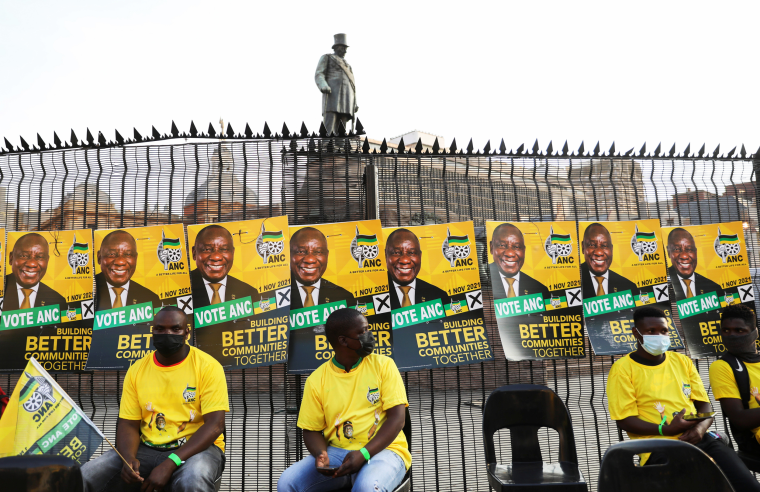PRETORIA, South Africa — South Africa’s governing African National Congress (ANC) took 46% of the vote in municipal elections this week, the final count showed on Thursday, the party’s worst election outcome since taking power at the end of white minority rule in 1994.
Voters punished the party for corruption and poor basic services in areas that have traditionally been ANC strongholds.
Winning less than 50% of the vote raised the possibility — albeit still remote — that South Africa could be governed by a party other than the ANC in the not too distant future.
Even a decade ago it would have been unthinkable that the legacy party of Nelson Mandela could be in opposition.
Figures from the electoral commission put the ANC’s biggest rival, the Democratic Alliance (DA), second on 22% of the vote and the Economic Freedom Fighters (EFF) third on 10%.
At the last municipal elections in 2016 the ANC got 54%, at the time its lowest vote share since the end of apartheid.
Despite the ANC’s falling popularity, rival parties have not yet been able to capitalize.
The DA is still regarded by many as a party for South Africa’s economically privileged white minority. The EFF, a fledgling Marxist party, is prone to radical and sometimes violent rhetoric that does not appeal to a broad range of voters.
The share of the ANC, led by President Cyril Ramaphosa, has consistently declined at local elections, often seen as a prime opportunity for the electorate to lodge protest votes.
ANC officials acknowledged on Wednesday that the continued slide in its support was a message from voters that the party needed to “shape up."
“It is an unambiguous signal to the ANC from the electorate ... people are disappointed in the ANC,” the party’s Deputy Secretary General Jessie Duarte told a news conference.
EFF leader Julius Malema, a former ANC youth leader, told reporters on Thursday that the next general election in 2024 would be even worse for the ANC and that ANC support dropping below 50% made him “the happiest man.”
